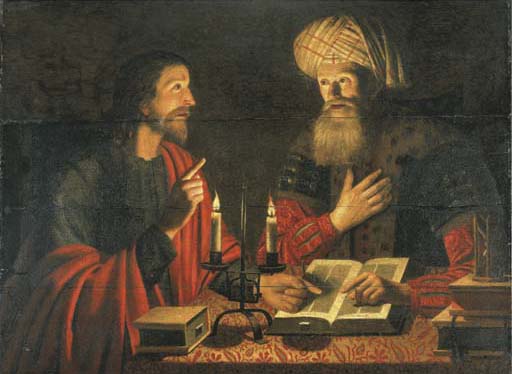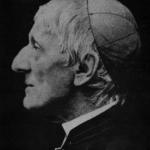
From my book, Revelation!: 1001 Biblical Answers to Theological Questions (2013). Bible verses in KJV unless specified.
***
Did Jesus destroy or fulfill the old covenant law?
Matthew 5:17-18 Think not that I am come to destroy the law, or the prophets: I am not come to destroy, but to fulfil. [18] For verily I say unto you, Till heaven and earth pass, one jot or one tittle shall in no wise pass from the law, till all be fulfilled.
Is faith contrary to the law?
Romans 3:31 (RSV) Do we then overthrow the law by this faith? By no means! On the contrary, we uphold the law.
Did Jesus teach that His followers were no longer bound to the teaching of the Jewish Pharisees?
Matthew 23:2-3 . . . The scribes and the Pharisees sit in Moses’ seat: [3] All therefore whatsoever they bid you observe, that observe and do; but do not ye after their works: for they say, and do not.
Is the law eternal or was it temporary?
Luke 16:17 And it is easier for heaven and earth to pass, than one tittle of the law to fail.
Did Christians continue to worship in the temple?
Acts 2:46 . . . continuing daily with one accord in the temple, . . .
Did the apostles attend the hour of prayer and sacrifice at the temple?
Acts 3:1 Now Peter and John went up together into the temple at the hour of prayer, being the ninth hour.
Did St. Paul attend synagogue services after his conversion to Christianity?
Acts 13:14-16 But when they departed from Perga, they came to Antioch in Pisidia, and went into the synagogue on the sabbath day, and sat down. [15] And after the reading of the law and the prophets the rulers of the synagogue sent unto them, saying, Ye men and brethren, if ye have any word of exhortation for the people, say on. [16] Then Paul stood up, and beckoning with his hand said, Men of Israel, and ye that fear God, give audience.
Did St. Paul pray in the temple?
Acts 22:17 And it came to pass, that, when I was come again to Jerusalem, even while I prayed in the temple, I was in a trance;
Did St. Paul continue to acknowledge the authority of the Jewish high priest when he was a Christian?
Acts 23:4-5 (RSV) Those who stood by said, “Would you revile God’s high priest?” [5] And Paul said, “I did not know, brethren, that he was the high priest; for it is written, `You shall not speak evil of a ruler of your people.'”
Did St. Paul refer to himself as a Pharisee after he became a Christian?
Acts 23:6 . . . Men and brethren, I am a Pharisee, the son of a Pharisee . . .
Did St. Paul continue to bring offerings to the temple, as a Christian?
Acts 24:17-18 Now after many years I came to bring alms to my nation, and offerings. [18] Whereupon certain Jews from Asia found me purified in the temple, neither with multitude, nor with tumult.
Did St. Paul attend a synagogue service on every Sabbath day?
Acts 18:4 And he reasoned in the synagogue every sabbath, and persuaded the Jews and the Greeks.
Did Jesus participate in the old covenant sacrificial system?
Luke 22:7-8 Then came the day of unleavened bread, when the passover [lamb] must be killed. [8] And he sent Peter and John, saying, Go and prepare us the passover, that we may eat.
Did Jesus abide by old covenant priestly regulations?
Matthew 8:3-4 . . . And immediately his leprosy was cleansed. [4] And Jesus saith unto him, See thou tell no man; but go thy way, shew thyself to the priest, and offer the gift that Moses commanded, for a testimony unto them.
What did St. Stephen call Jewish elders, scribes, and the high priest (cf. Acts 6:12; 7:1)?
Acts 7:2 . . . Men, brethren, and fathers, hearken; . . .
***
Photo credit: Christ talking with Nicodemus at Night, by Crijn Hendricksz Volmarijn (c. 1601-1645) [public domain / Wikimedia Commons]
***













